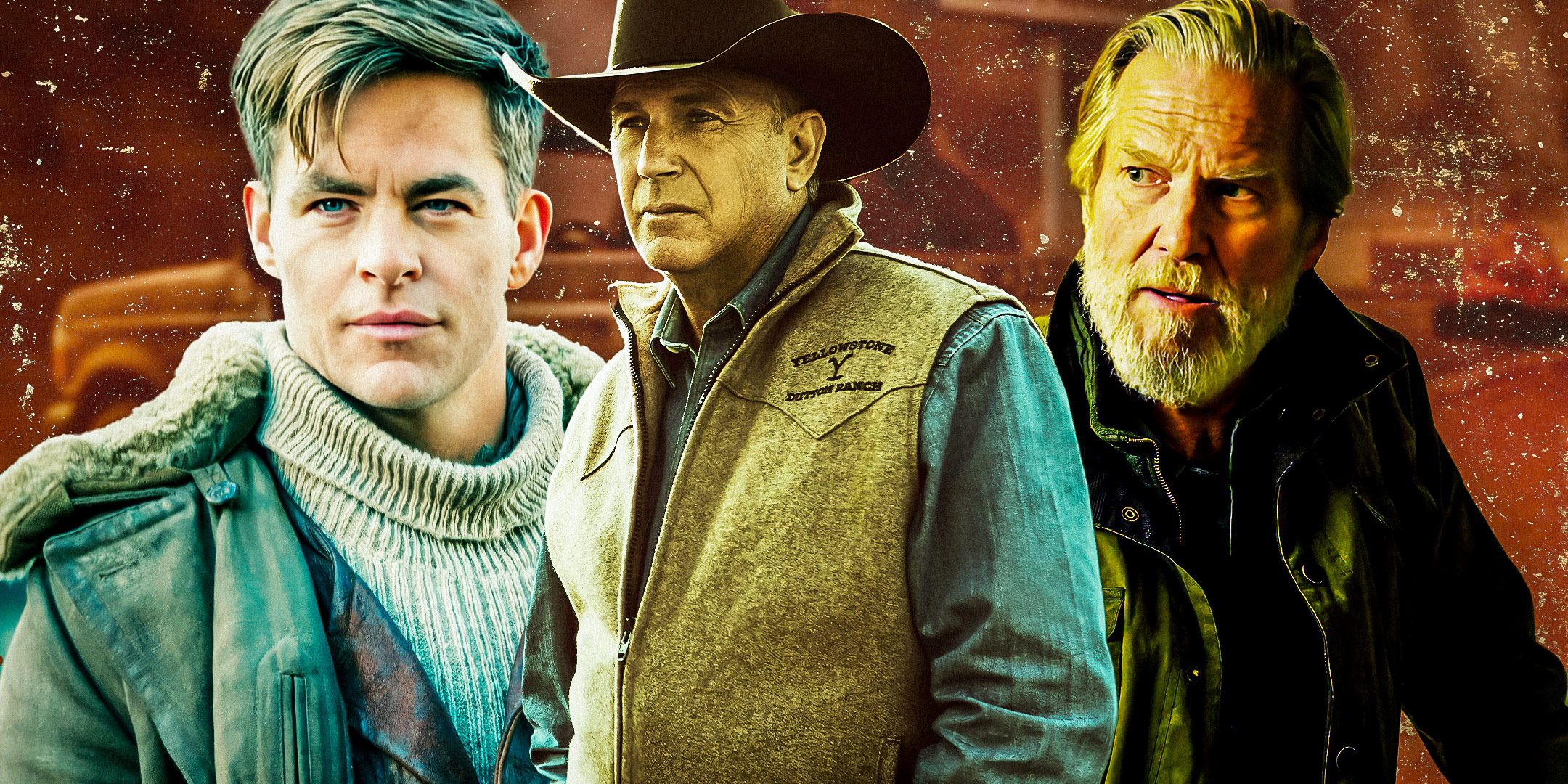When audiences revisit Hell or High Water, the 2016 neo-Western starring Chris Pine and Jeff Bridges, they are reminded not only of the film’s brilliance but also of Taylor Sheridan’s undeniable gift for storytelling on the big screen. Although Sheridan has become a household name thanks to the massive success of Yellowstone and its expanding television universe, the conversation surrounding Hell or High Water has reignited a pressing question: when will Sheridan step back into cinema to deliver another unforgettable film? The seven-year-old Western crime thriller continues to resonate because it combines raw character work, social commentary, and gripping drama in a way few modern films have achieved.
Hell or High Water, directed by David Mackenzie and written by Sheridan, tells the story of two brothers, Toby (Chris Pine) and Tanner (Ben Foster), who embark on a desperate bank-robbing spree to save their family ranch from foreclosure. Their crimes draw the attention of Texas Ranger Marcus Hamilton (Jeff Bridges), a grizzled lawman nearing retirement. The film is at once a tense thriller and a deeply emotional story about family, poverty, and the changing American West. It captures themes Sheridan has revisited throughout his career: land, legacy, and the struggle of working-class people against powerful institutions.
The film struck a chord with critics and audiences alike, earning four Academy Award nominations, including Best Picture and Best Original Screenplay for Sheridan. It was widely praised for its authenticity, tight script, and the balance between action and emotion. Unlike traditional Westerns that glorified cowboys and frontier justice, Hell or High Water presented a modernized, morally ambiguous tale that asked difficult questions about justice, survival, and the price of progress. It stood apart from other films of the decade by blending Western tropes with contemporary relevance, cementing Sheridan’s reputation as one of the most important voices in American cinema.
Since then, Sheridan has focused primarily on television, where he has built an empire through Yellowstone, 1883, 1923, Mayor of Kingstown, and Tulsa King. These shows have made him one of the most powerful figures in modern entertainment. Yet, while his TV projects have been wildly successful, fans of Hell or High Water continue to wonder what might happen if Sheridan returned to film. The scale and intimacy of cinema offer him opportunities to refine his storytelling in ways that serialized television, with its extended arcs and subplots, cannot always achieve.
Sheridan’s genius lies in his ability to blend personal stories with broader societal issues. In Hell or High Water, he explored the economic despair of rural America in the wake of the financial crisis, where small-town families lost land and dignity to predatory banks. The film gave audiences a glimpse into the struggles of people often ignored by mainstream Hollywood. Similarly, Yellowstone explores land ownership battles, generational conflicts, and modern encroachments on tradition. Yet, the compact format of a film like Hell or High Water allowed Sheridan to craft a story that was both laser-focused and deeply impactful in under two hours.
There is also a cinematic poetry in Sheridan’s film writing that deserves to be showcased again. His dialogue, often sharp and tinged with dark humor, carries the weight of truth without becoming preachy. His characters are complex, never purely good or evil, but shaped by circumstance, history, and personal demons. In Hell or High Water, Chris Pine’s quiet desperation contrasted beautifully with Ben Foster’s reckless volatility, while Jeff Bridges’ world-weary humor added richness to the pursuit. These dynamics worked so well because Sheridan’s script was honed for the silver screen.
As television continues to dominate his schedule, there is a risk that Sheridan’s film voice could fade into memory rather than evolve. This is why fans argue that it is time for him to return with another movie—something bold, intimate, and powerful that can stand alongside his earlier ci